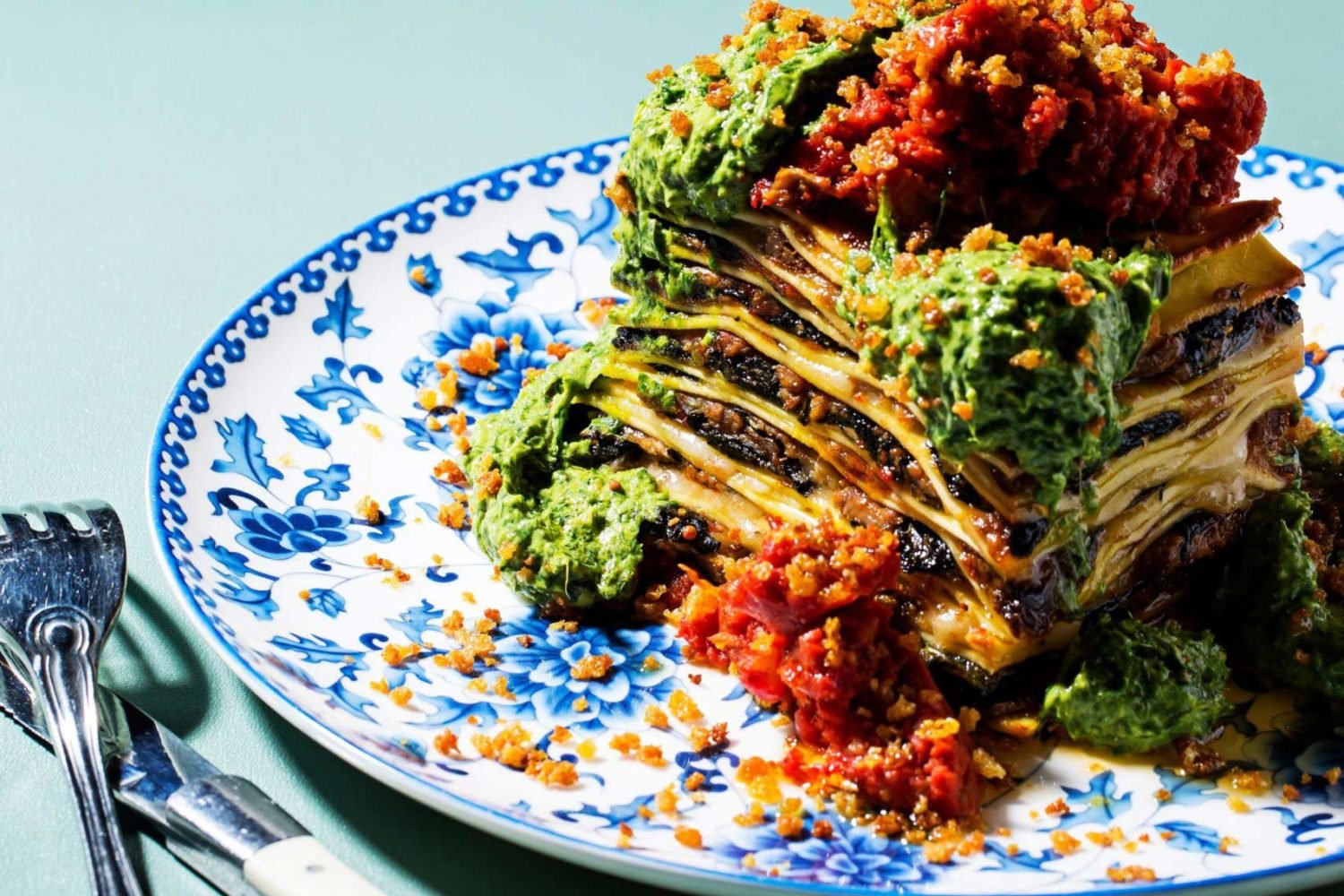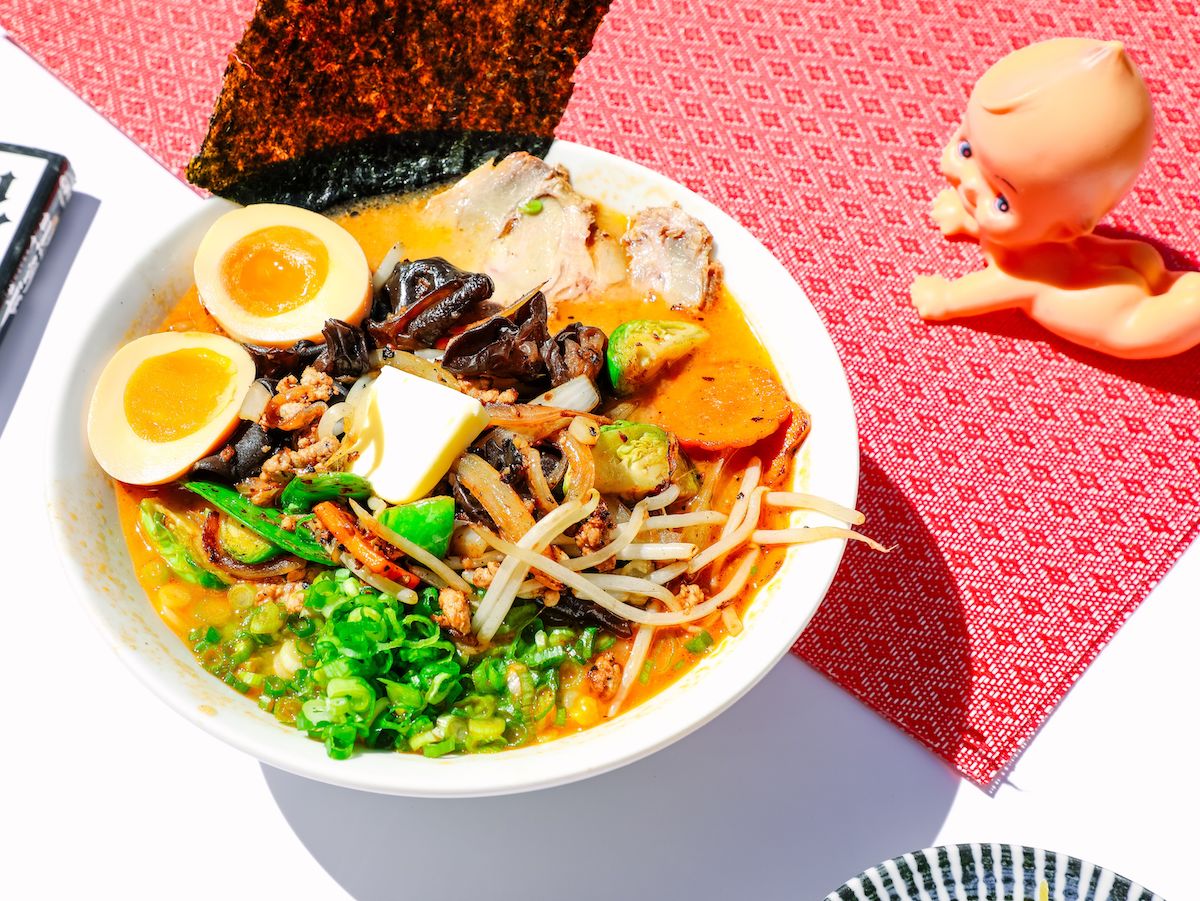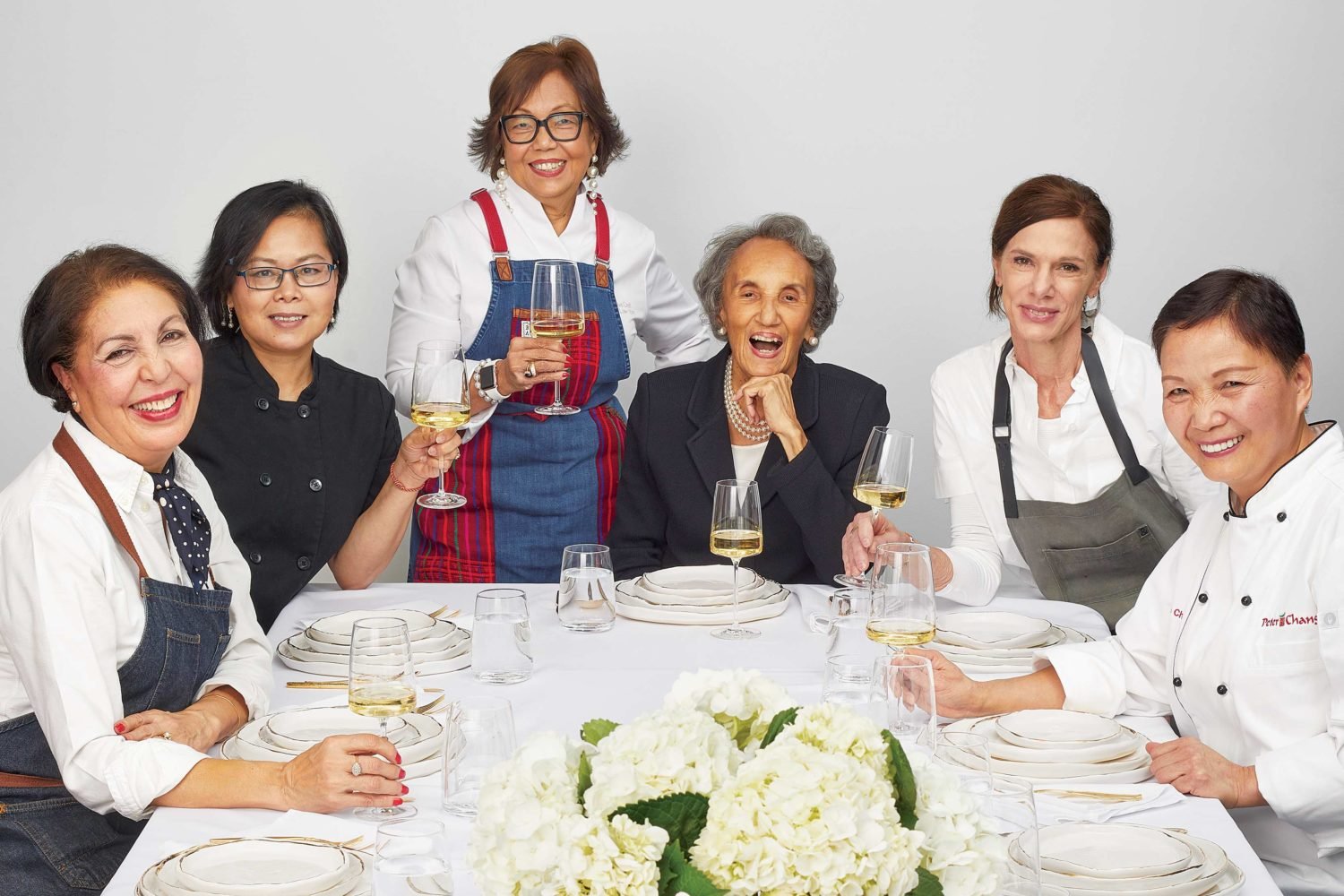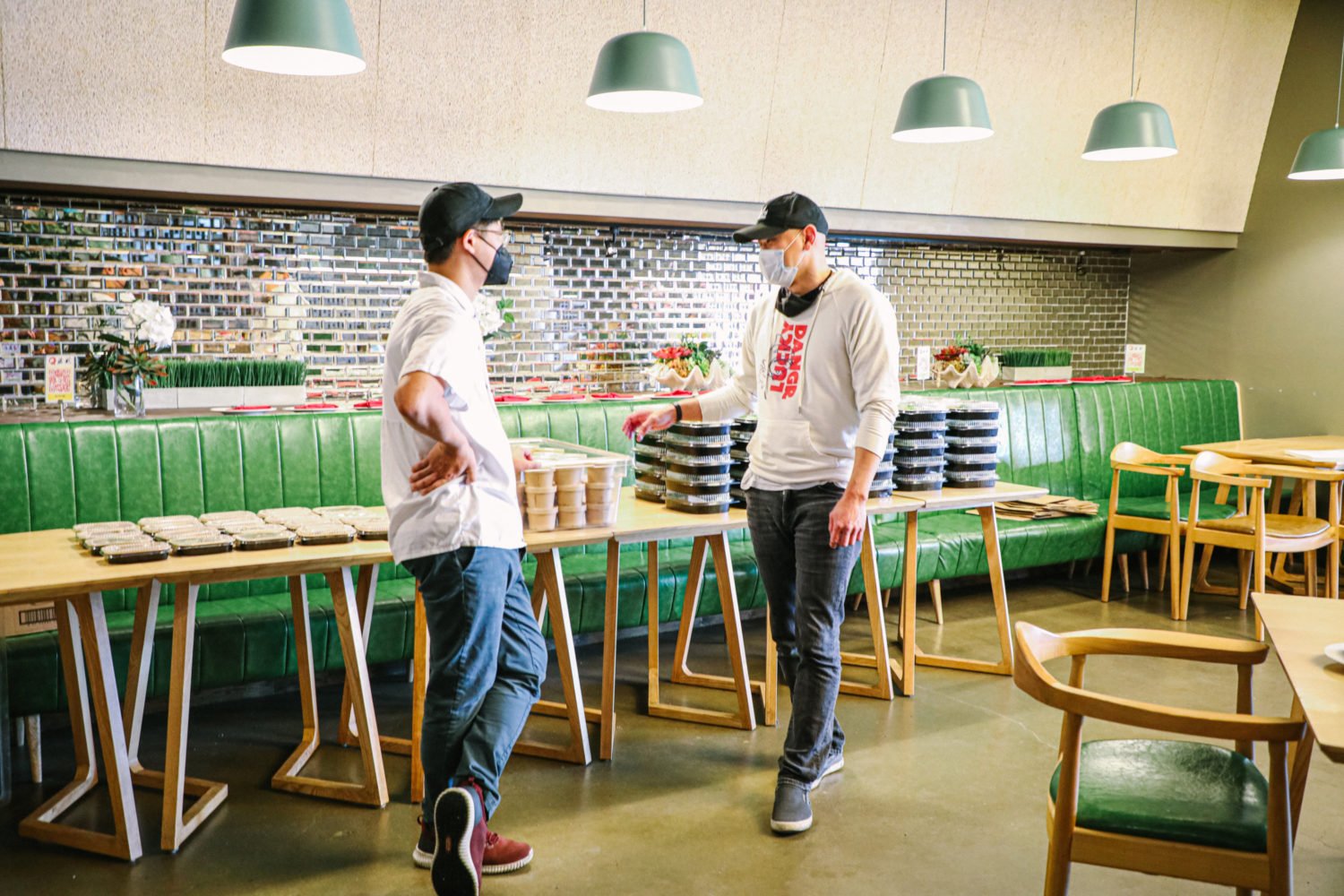Erica Christian is a server and sommelier who, over the last five years, has worked at natural wine shop Domestique and a number of high-profile DC restaurants including Daikaya ramen, Michelin-starred Adams Morgan destination Tail Up Goat, Capitol Hill newcomer Emilie’s, and—until the pandemic hit—Thamee, the Burmese restaurant on H Street that just clinched a Food & Wine “Best New Restaurant” award. She talked to us about her experience as a Black, queer woman in the DC restaurant industry.
What’s your pandemic experience been like?
Erica Christian: “I’m not working at any [restaurants] because of Covid. On a more personal note, I was diagnosed with an autoimmune disorder last week. So I will not be returning for the upcoming phases until things are much safer.
Honestly for everyone, regardless of privilege, race, whatever, it’s a generational trauma. On top of that, the number of Black Covid-related deaths account for nearly a quarter of the deaths in the country. So that’s a trauma in itself. Even if I wasn’t immunocompromised, I couldn’t see myself going back knowing that Black people are dying at higher rates.
I so strongly feel that without citywide implemented safety requirements, it’s difficult to know if I’m going to be safe at work because no one has done this before. Workers are often treated as disposable. The industry has very high turnover rates in all positions.”
But Tail Up Goat and Thamee seem to have lower turnover rates, right?
“Yes. Tail Up Goat is very much an investment in learning. We were tested. Once you start putting that style of effort in, it definitely breeds less turnover. But even there…I’ve left every single restaurant because I was the only Black employee. Every. Single. One. [With the exception of Thamee and Domestique, which Christian is still connected to.]
Personally as a Black woman, I do not feel safe returning to a workspace that isn’t speaking out during this time. Because it shows a complete disregard for livelihood and for my safety. This isn’t a personal, civil issue. This is a very huge systemic issue. And because people have to sit still now during this pandemic, people are really seeing what’s happening. And sitting with the injustices that they’ve never noticed because these systems serve them—they haven’t had to.
Even if I wasn’t immunocompromised, I would really have to sit down and think about where I’d be going. Because like I said, I left every one of those places because I did not feel comfortable as a Black woman there. These people are great people. They do great work. But at the end of the day, how many white or non-Black-owned restaurants can you point to that actively work with Black communities? That have Black managers? That have Black leadership, Black sommeliers?”
When you say that you felt uncomfortable as those workplaces, is it more about what people weren’t doing than what they were?
“It’s a combination of both. Really, there’s this idea that when we stand up for causes, we do it once. Or once in that year. But this isn’t a cause. This isn’t like fighting an illness or donating to cancer research. It’s literally making sure that there is space for an existing population that has been disserviced for hundreds of years.
I’ve been called very eloquent, very well-spoken. I’ve been told that it’s a surprise that I know so much about wine. I’ve had guests ask me what I had to do to go from bussing to serving. I’ve gone to tables and given spiels about what we do and what we’re offering that evening, and they’ve asked to talk to their server because they didn’t believe that I was there server.
There’s this idea that people want to hire diversity. But diversity doesn’t mean multiculturalism or inclusion. Diversity can just be an image. So it’s been difficult to navigate this world in which everyone wants to look like diversity, but no one wants to do that work to actually serve the people they’re hiring. There’s this I-don’t-see-color mentality, or it doesn’t matter that you’re Black.’ But unfortunately, it does.”
You’re in a business where you have to play nice to people. Part of your job is welcoming them into the dining room. And when you hear a guest say what you just told me, how do you handle that?
“With a smile and as much grace as possible, because that’s what professionalism is. It’s steeped in racism. It’s steeped in silencing.
If you really think about it, we’re all adults. You’re paying for a service. At the end of the day, you’re walking into a place that is not owned by you. So there should be so much more of that ownership and leadership due in those cases for their Black employees.
There was one time where a guest—he was very bored, rude—there were many, many microaggressions, comments about my hair, comments about my skin. He wanted me to go ahead and get his wine. And he gestured in pretending to slap me on the ass. Literally a manager went over and took care of the table. One of the owners went over and said ‘If you do not behave, you will be kicked out.’ But in my opinion, I would have just been like, this is a no! This is a no. Because now, the person is still working there, they’re just avoiding that table. Dining rooms aren’t that big.
There’s this idea that because someone comes into your business and is spending money, we have to cater to them. You hear it all the time: the customer’s always right. They’re not always right! I’m not always right. And because there’s this lack of understanding in what it is to be a Black woman in the workplace, if I’m treated with racism, people aren’t kicked out. Someone else takes my table.
The thing about hiring people of color is that you then have to cater to that sense of multiculturalism, and be inclusive, and be transparent. I honestly don’t feel that there’s any business I’ve worked for in DC that has mastered that yet.
Everyone wants to donate once to Black Lives Matter. Donate once to the NAACP. Donate once to Campaign Zero. But if Black lives matter to this business, you should probably serve the Black lives that exist in the neighborhood you’re probably gentrifying.”
When you transitioned to being a sommelier, did you feel more valued?
“Honestly, no. I feel like the place where I was treated the best in terms of my wine knowledge, those places have been Thamee and Domestique. In part because no one is going to tell me that they can’t believe I’m the somm when all the other somms next to me are also people of color. There really is something about creating spaces where people can’t behave that way because that behavior can’t coexist with what they’re actively experiencing and seeing.”
To work in this industry and be Black—to actually want to work in this industry and not use it as a transition into something else—it’s an incredible hardship because you constantly see your culture exploited. Anytime I see a white business benefit from overly expensive fried chicken dinners it drives me absolutely insane. Because no one goes to the local Black-owned restaurant to get it.”
How’d you deal at Emilie’s [which served a $40 plate of fried chicken]?
“It was frustrating even there. I had to sell this big plate of expensive fried chicken that, sure it’s good, but it’s ranch fried chicken. And sure fried chicken is American, but there are so many connotations that come with that, and there’s so much culture that goes into that. You work in a restaurant and see multiple facets of your culture coopted, used, and put on advertisement, but nothing is actually done to service the people who actually built the American food industry.
Rock Harper, I think he said, ‘to be a Black chef is to live with normalized rage.’ And that’s really what it is. Me being upset because someone treats me racistly is OK. Because it’s normalized. Because racism is accepted and we know it’s going to happen. So instead of white owners and non-Black owners being prepared to say, ‘zero tolerance,’ it’s normalized to say, ‘OK, this is an uncomfortable experience, we’ll just give it to someone else who won’t experience it.’ At that point, how can I not feel disposable?
Have you worked in places where you felt like upward mobility was a possibility?
“The only time I felt a chance at upward mobility was Simone [co-owner Simone Jacobson] at Thamee sitting me down and, she was really the first person to say, ‘I think you’re brilliant. We want you to work with us. I know you’ve made a lot of money at Tail Up, I know you’ve made a lot of money at Emilie’s. We are not a big restaurant, but we can provide you with community. We want to give you the wine list, we want it to be yours.’
I feel that Tail Up Goat tried to do that. I loved learning about wine from Bill [co-owner Bill Jensen]. He takes it upon himself to really powwow with you and talk with you about it. He’s really passionate. He was one of the people who taught me that I didn’t need to take these [sommelier] tests. All I’m doing is trying to relate to you and help you find what you like. That’s the passion that I feel for it. If I can pour you a glass of something that you wouldn’t have tried otherwise, and then you have this new favorite wine. You know what you like, then you can walk into a space—that maybe sees you as a woman and thinks, ‘she doesn’t know what she’s talking about’—and ask for what you want. That is my goal in the industry and I felt that that was his goal too.
I felt that I was taught well, but I never would have gone into management at Tail Up Goat. I was the only Black employee. The time I’ve been there, I’ve seen two other Black people hired in almost two years. One back of house, and one host. So how can I see upward mobility at a place that has no Black managers? Or managers of color?”
What are other ways you see Black culture being coopted?
“Music. I cannot stand when I hear the N-word playing on a speaker and I look around and I don’t see any Black staff. Call Your Mother is one of these places where I see Drake plastered on all the walls. It’s steeped in Black culture, and there is not a Black person who owns that restaurant. What I see is a lot of Blackness, but no actual Blackness.
When I’m at lineup and my manager says it’s gonna be a ‘lit’ service or a ‘fire’ service, it’s language too. Don’t talk to me like you think I’m speaking. Because I’m not going to say ‘it’s gonna be a lit service.’ I think it’s going to be a great service and be very productive.
Or maybe you want me to teach you the latest dance.”
What have your experiences been like as a diner?
“When I first came here I was in school [at George Washington University]. I was not treated well at all. I’d go to bars and order a boozy drink like an old fashioned, and been told that I’m not going to like that and been served something else. I’ve gone to places where I know the wine list and actively experienced servers trying to sell me sweet wines because they think Black people like sweeter wines.”
They literally gave you a different drink?
“Literally made me a different drink and said, here, you’ll like this more. Because [the bartender], as a white man, did not want to put in the effort for me not liking something and having to make something else. To be served a sweeter gin drink—a completely different spirit—that’s the level of disregard I was experiencing.
I had people not ask the people next to me to start tabs, but ask me to start a tab so they could have my card on file. Just in case I couldn’t pay or tried to leave without paying. Even being with groups of Black women, and being told that we were being too loud.
I’m working with Chocolate City’s Best, which is an organization in DC which was started by a Black bartender, Kapri Robinson. She’s basically building a platform for Black and Brown workers. And I’m working with them on an ‘Empowering the Diners’ wine series, so that people have access to learning about what they like and learning about wines without being mistreated. Just look at the tasting notes that we’re taught to sell. I didn’t have an apricot until I was 22. Being a Black woman, lilacs and purple flowers and apricots and underripe fruits, that’s not something you’re versed in.”
What’s next for you?
“I have no clue. I am looking into many options. I’m looking into making wine. Right now, I would just love to work at a place where I can be myself and not have to advocate for myself as a Black woman.”
This interview has been shortened and condensed.















